News
-
 Health & Medicine
Health & MedicineOmicron forces us to rethink COVID-19 testing and treatments
At-home rapid tests may miss the speedy variant early on, and some treatments, such as some monoclonal antibodies, no longer work.
By Tina Hesman Saey and Laura Sanders -
 Animals
AnimalsFemale dolphins have a clitoris much like humans’
The similarities suggest female dolphins experience sexual pleasure, which may explain why the species is so randy all the time.
-
 Planetary Science
Planetary ScienceOxygen-rich exoplanets may be geologically active
Experiments show that rocks exposed to higher concentrations of oxygen have a lower melting temperature than rocks exposed to lower amounts.
By Shi En Kim -
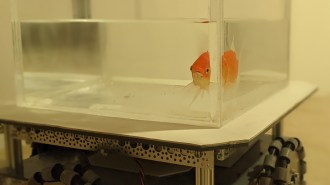 Animals
AnimalsHere’s what goldfish driving ‘cars’ tell us about navigation
When measuring intelligence, the saying goes, don’t judge a fish by its ability to climb a tree. But what about its ability to drive a vehicle?
-
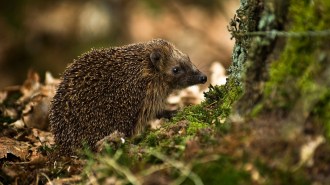 Microbes
MicrobesDrug-resistant bacteria evolved on hedgehogs long before the use of antibiotics
A standoff between bacteria and antibiotic-producing fungi living on hedgehogs may have led to the rise of one type of MRSA some 200 years ago.
-
 Earth
EarthSome volcanic hot spots may have a surprisingly shallow heat source
Mysterious hot spots of volcanic activity in the interior of tectonic plates just got a little stranger.
By Sid Perkins -
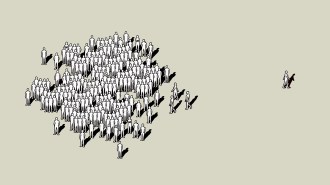 Science & Society
Science & SocietyWhy do some people succeed when others fail? Outliers provide clues
A close look at outliers — people or communities that defy expectations — reveals what could be.
By Sujata Gupta -
 Physics
PhysicsAntiprotons show no hint of unexpected matter-antimatter differences
The ratio of electric charge to mass for protons mirrors that of their antimatter counterparts.
-
 Health & Medicine
Health & Medicine‘Blastoids’ made of stem cells offer a new way to study fertility
Newly created “blastoids” could help with research on nonhormonal contraceptives and fertility treatments.
By Jake Buehler -
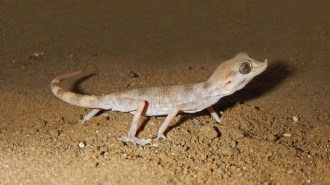 Animals
AnimalsHere’s how spider geckos survive on Earth’s hottest landscape
An analysis of the stomach contents of Misonne’s spider geckos shows there are more critters in the heart of Iran’s Lut Desert than meets the eye.
By Jude Coleman -
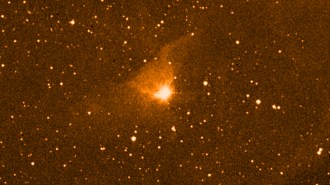 Astronomy
AstronomyTwo stars’ close encounter may explain a cosmic flare that has barely faded
A brilliant outburst of light that has lasted nearly a century arose when two young stars skirted past each other, simulations suggest.
By Ken Croswell -
 Health & Medicine
Health & MedicineThe coronavirus may cause fat cells to miscommunicate, leading to diabetes
Researchers are homing in on a surprising cause of high blood sugar in COVID-19 patients and possibly what to do about it.